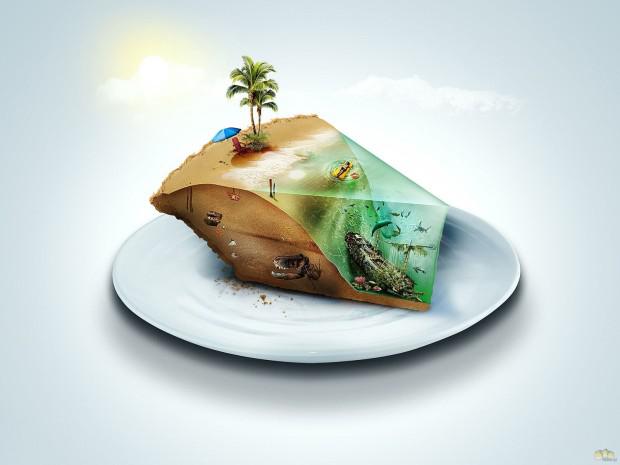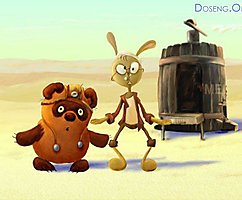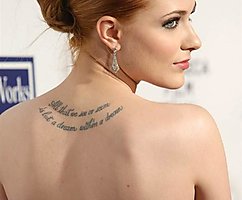The curious effect of "less - better" makes you choose a smaller value
 Bashny.Net
Bashny.Net
In the absence of a direct comparison of the consciousness in the wrong vybore
People tend to prefer a less expensive cost presents a more expensive if they were unable to make a direct comparison of two things. For example, people are likely to prefer rather expensive scarf worth $ 45 cheap coat for $ 55, despite the fact that the price of the coat still higher.

This manifestation of the effect of "less - better." The first term was coined by Christopher C, and later engaged in studies of the effects Dan Ariely.
Experiments conducted Li, showed that people prefer smaller or less expensive items, but a little better quality, for example, seven balls of ice cream in full melenko dish seem more attractive than eight balls in a large cup, which nevertheless visually will seem filled not to end. Small but new vocabulary more like more details of the dictionary, but shabby cover.
Interestingly, if the person at the same time offer a choice of two objects, in other words, if a person will be able to make a direct comparison, it chooses a more expensive or a great gift.
The reasons for this effect are:
Thinking on the contrary: the person decides to get anything better than not getting anything at all. For example, athletes are more than happy bronze medals than silver, because silver medal is perceived as a loss of a gold and a bronze - as a replacement for the possibility did not get a medal. Heuristics computable assessment: people make choices based on indicators that are easier to express verbally. For example, when comparing two pictures of a person chooses so that it was easier to explain their choices. If there is no need to explain, the choice may be different. Representativeness heuristic: people find it easier to assess a gift on the basis of any average, and not on the basis of a large sample.
via factroom.ru

People tend to prefer a less expensive cost presents a more expensive if they were unable to make a direct comparison of two things. For example, people are likely to prefer rather expensive scarf worth $ 45 cheap coat for $ 55, despite the fact that the price of the coat still higher.

This manifestation of the effect of "less - better." The first term was coined by Christopher C, and later engaged in studies of the effects Dan Ariely.
Experiments conducted Li, showed that people prefer smaller or less expensive items, but a little better quality, for example, seven balls of ice cream in full melenko dish seem more attractive than eight balls in a large cup, which nevertheless visually will seem filled not to end. Small but new vocabulary more like more details of the dictionary, but shabby cover.
Interestingly, if the person at the same time offer a choice of two objects, in other words, if a person will be able to make a direct comparison, it chooses a more expensive or a great gift.
The reasons for this effect are:
Thinking on the contrary: the person decides to get anything better than not getting anything at all. For example, athletes are more than happy bronze medals than silver, because silver medal is perceived as a loss of a gold and a bronze - as a replacement for the possibility did not get a medal. Heuristics computable assessment: people make choices based on indicators that are easier to express verbally. For example, when comparing two pictures of a person chooses so that it was easier to explain their choices. If there is no need to explain, the choice may be different. Representativeness heuristic: people find it easier to assess a gift on the basis of any average, and not on the basis of a large sample.
via factroom.ru
Tags
See also
The worst enemy of women
Ten most stupid and ridiculous criminals Ukraine
Stunning 60 "hacks" of the brain that will make your life better
Tips for Weight Loss
Egyptian horoscope
Supermarkets: cunning, forcing you to buy
Error survivors
Pitfalls of consciousness
10 tips from the thirty people over forty
The collective wisdom. 10 tips from the thirty people over forty

















